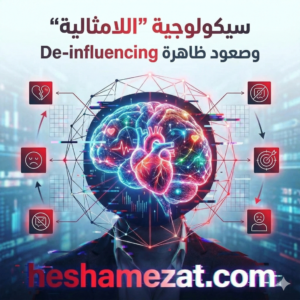Storytelling in Business Q&A
What is Storytelling and what differentiate it from other methods of communication?
Well, let me tell a small and renowned anecdote. Once upon time two little ladies competed to attract the attention of the people while walking through the village, the first lady called Truth,
she went first, she was confident that everyone seeks and wants to know Truth but people began to turn away from her, she didn’t attract anyone, even when she got naked so she would get more attention but surprisingly, the villagers closed their doors and shuttered their windows.
Then it was the turn of the other lady, she called Storytelling , as soon as she walked into the village, people came out of their houses happily following her through the streets. By the time she returned to Truth, the entire village was in the streets,
and then the lady story told to her friend truth one memorable words “few people want to see the Truth, and even fewer want to see the naked truth. But when you cloak yourself in Story, only then people will seek you, people will listen to you, people will accept you, as I always did.”
Human brains are wired to receive and objectively analyze truth, fact, numbers and statistics and to reformulate them into a certain decision and output, but things doesn’t go that easy, we are unlike computers that do this mission fast and accurate, though we are different, yet we are much more sophisticated. Our amazing brains are being besieged by huge walls and high gates that are called emotions which most of the times are acting weirdly enough to understand them,
they guard and filter what goes into the brain, and they authorize what goes out and what doesn’t. Those are the emotions that used to refuse to pass the pure truth, ceasing them from penetrating the fort of the mind, yet the story is the only communicative approach that can infiltrate the heavy guards of the mind by wearing this ornamented cloak that hides the truth inside so they can get into the human mind. That’s why storytelling was the main tool of communication that humans developed in various cultures and since the beginning of time, and throughout the history, leaders and experts of influence and persuasion were always labeled as highly skillful storytellers in storytelling.
you can read When Persuasion Kills!
How did storytelling shift the path from literature and education to the business world?
Two hundred years ago, there was a booming of new structure of private business sector, for the first time in history we built forms of business communities called companies and organizations that brought hundreds of people in to work there from 8 to 5 on daily basis for tens of consecutive years, this model of business spread all over the world, while it wasn’t known for thousands of years before, human beings never experienced this kind of lifestyle, so this new form of business life incurred new methods and techniques aiming to solve the dilemma of how to effectively manage these mass numbers of people on a daily basis.
So many theories and applications emerged and by time passing and via trial and error many of them proved to be not correct, for example many literature spoke about how to increase the motivations of the employees, while recent theories claim that motivation is an intrinsic value in the human beings, people are already motivated, the motivation button in human beings was switched on upon our birth, employees comes to the company while they are naturally motivated unless you’re esteemed company begins to de-motivate them,
another myth was stated by behavioral scientists like Skinner in the 50’s that errors must be dealt with a punitive reaction so to create a negative emotion that prevent further errors, and nowadays that theory proved its inexactitude.
One of the main believes of business leaders had till the mid of the last century was that emotions have no place inside the company’s premises, whether between the co-workers or between the customers and sales force, and this is the only myth that can be equivalent to the old belief that the earth was flat. Now almost all the people on the globe exclusively share two authentic believes, first the earth is sphere, second, emotions are the main governing variable in the business equation.Business Strategy how to find Error Management
Tons of books and researches talked and proposed about new models of how to generate emotions so to solve this equation, how to deal with negative emotions, how emotions are the main cause of closing a deal, how you keep your talented employees by managing their emotions, and by late second half of the last century, business literature began to talk about the role and effect of storytelling so to generate and govern emotions, whether for leadership,
team working, sales, marketing…etc. and many successful leaders kept sharing storytelling of their stories that led them to the pinnacle of their business achievements, from the lots of amateurs began to learn and to apply storytelling in their workplace and the result was instantaneous however the story wasn’t that good, because people everywhere in the world were much thirsty for stories, so it works anyway.
What makes a business story compelling?
Now I’m writing a new book about Storytelling, its title was Storytelling in Business, and that was the first title I thought for the book. Then, I was deeply thinking for long time about your same question, what makes a business story compelling? and finally the answer was one single word, it was Projection, so all of a sudden, I altered everything upside down, and I set the title to be “The Power of Projection: How a story can lead a business to a perpetual growth.” Stories are the perfect tool that can bring the blurred view to a form crystal clear image, it turns ambiguity to clarity, it molds the unbelievable facts into a convincing sequence narrative. Storytelling doesn’t alter the truth, rather it encapsulates it in a captivating cloak that let the minds and hearts and accept and embrace it.
What are the types of stories that we can you use in our daily business?
From a perspective of the nature of the story, we can say that there are two types of them, one is the personal story which is very effective in making engagement fast and deep, because people loves the true stories, that comes out from the mouth of its protagonist, that’s why the best storytellers are the old and successful people, who got in their mind tens of true, personal stories they kept telling for hundreds of times and they know how to get the ohs and ahs from the audience at a certain parts of their narrative, that’s why we recommend young people to begin gripping and writing down all the stories that happen to them throughout their career as well, and throughout their personal lives, whatever you see that your story looks naive and simple, but its effect can be huge to others.
The second type of stories is the imaginary one, and this one is so important as it has vast domain of “ethical fabrication”, and it helps whoever didn’t get in his pocket enough personal stories, also imaginary stories enhance the emotional engagement through setting up the right characters, incidents, conflict, outcome and conclusion, they are tailored made by the hand of the smart storyteller, so it all depends on your imagination to make your story enough engaging and emotional.
Escalating Commitment: The Rule of 10
So, what other perspectives of the stories used in business?
The stories can be categorized by their purposes, in the book The Power of Projection, we propose five types of stories;
Who am i?
Why am I here?
Vision.
Value.
Decision Taking.
We believe that these five purposes represents the majority of situations that face most of us in our various business modules on a daily basis, and by being well-trained to narrate multiple stories that serve each of the five purpose, we believe it will lead to more attention, liking, which results to a compliance to your message, which means a perpetual growth for your business.
join now to our marketing diploma دبلوم التسويق السيكولوجي







